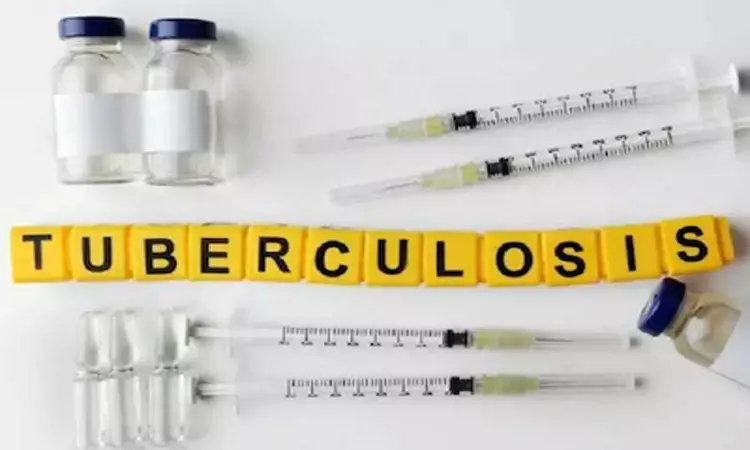- Home
- Medical news & Guidelines
- Anesthesiology
- Cardiology and CTVS
- Critical Care
- Dentistry
- Dermatology
- Diabetes and Endocrinology
- ENT
- Gastroenterology
- Medicine
- Nephrology
- Neurology
- Obstretics-Gynaecology
- Oncology
- Ophthalmology
- Orthopaedics
- Pediatrics-Neonatology
- Psychiatry
- Pulmonology
- Radiology
- Surgery
- Urology
- Laboratory Medicine
- Diet
- Nursing
- Paramedical
- Physiotherapy
- Health news
- Fact Check
- Bone Health Fact Check
- Brain Health Fact Check
- Cancer Related Fact Check
- Child Care Fact Check
- Dental and oral health fact check
- Diabetes and metabolic health fact check
- Diet and Nutrition Fact Check
- Eye and ENT Care Fact Check
- Fitness fact check
- Gut health fact check
- Heart health fact check
- Kidney health fact check
- Medical education fact check
- Men's health fact check
- Respiratory fact check
- Skin and hair care fact check
- Vaccine and Immunization fact check
- Women's health fact check
- AYUSH
- State News
- Andaman and Nicobar Islands
- Andhra Pradesh
- Arunachal Pradesh
- Assam
- Bihar
- Chandigarh
- Chattisgarh
- Dadra and Nagar Haveli
- Daman and Diu
- Delhi
- Goa
- Gujarat
- Haryana
- Himachal Pradesh
- Jammu & Kashmir
- Jharkhand
- Karnataka
- Kerala
- Ladakh
- Lakshadweep
- Madhya Pradesh
- Maharashtra
- Manipur
- Meghalaya
- Mizoram
- Nagaland
- Odisha
- Puducherry
- Punjab
- Rajasthan
- Sikkim
- Tamil Nadu
- Telangana
- Tripura
- Uttar Pradesh
- Uttrakhand
- West Bengal
- Medical Education
- Industry
WHO recommends shorter treatment regimens for drug-resistant tuberculosis

USA: The World Health Organization (WHO) has updated its guideline for the treatment of drug-resistant tuberculosis.In its updated released guideline on the treatment of drug-resistant tuberculosis (DR-TB), the World Health Organization (WHO), has called for a shorter drug course for resistant TB.
The update includes shorter novel 6-month all-oral regimens for the treatment of multidrug- and rifampicin-resistant TB (MDR/RR-TB), with or without additional resistance to fluoroquinolones (pre-XDR-TB) as well as an alternative 9-month all-oral regimen for the treatment of MDR/RR-TB.
According to the rapid communication of WHO, all treatment should be delivered under WHO-recommended standards, including patient-centered care and support, informed consent where necessary, principles of good clinical practice, active drug safety monitoring and management, and regular monitoring of patients and of drug resistance to assess regimen effectiveness.
The Rapid Communication is released in advance of updated WHO consolidated guidelines expected later in 2022, to inform national TB programmes and other stakeholders of key changes in the treatment of DR-TB and to allow for rapid transition and planning at the country level.
"We now have more and much better treatment options for people with drug-resistant TB thanks to research generating new evidence. This is major progress compared to what was available even a few years ago, and will be of great benefit for people struggling with TB and drug-resistant TB, resulting in better outcomes, saving lives, and reducing suffering.", said Dr. Tereza Kasaeva, Director of WHO's Global TB Programme.
"We now need all hands on deck to enable the rapid uptake of these guidelines, and to enable access to the new treatment options for those in need."
To support countries in responding to the challenges of TB and DR-TB, including extensively drug-resistant TB (XDR-TB) and pre-XDR-TB, the WHO Global Tuberculosis Programme (regularly issues evidence-based guidelines using the international Grading of Recommendations Assessment, Development and Evaluation (GRADE) approach to the assessment of scientific evidence.
A Guideline Development Group was convened by WHO from 21 February to 25 March 2022 to review the new evidence on the treatment of drug-resistant TB that became available to WHO through national TB programs (NTPs), researchers and technical partners, and also from a WHO public call for data issued in June 2021.
The guidance is based on evidence gathered in two phase 3 clinical trials—TB-PRACTECAL and ZeNIX—that found the BPaLM and BPaL regimens to be highly effective (89% cure rate and higher) in patients with MDR/RR-TB over the age of 15. The WHO convened an independent guideline development group (GDG) in February and March to review the evidence and update the guidelines accordingly.
Dr Kamal Kant Kohli-MBBS, DTCD- a chest specialist with more than 30 years of practice and a flair for writing clinical articles, Dr Kamal Kant Kohli joined Medical Dialogues as a Chief Editor of Medical News. Besides writing articles, as an editor, he proofreads and verifies all the medical content published on Medical Dialogues including those coming from journals, studies,medical conferences,guidelines etc. Email: drkohli@medicaldialogues.in. Contact no. 011-43720751


